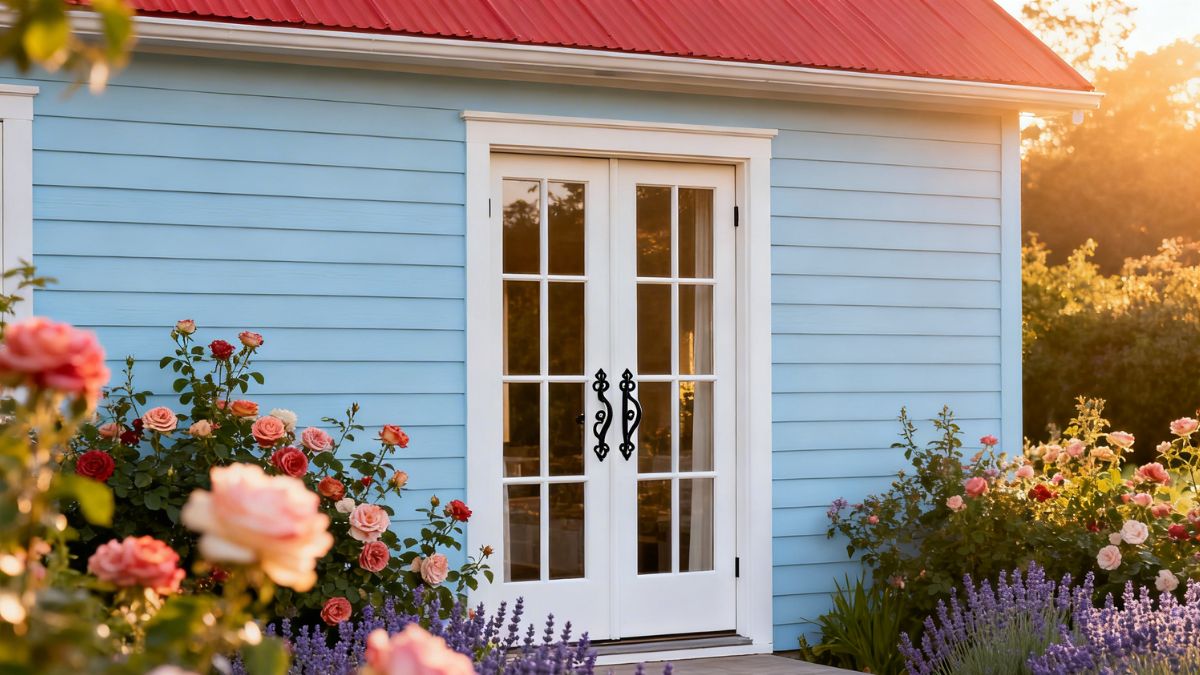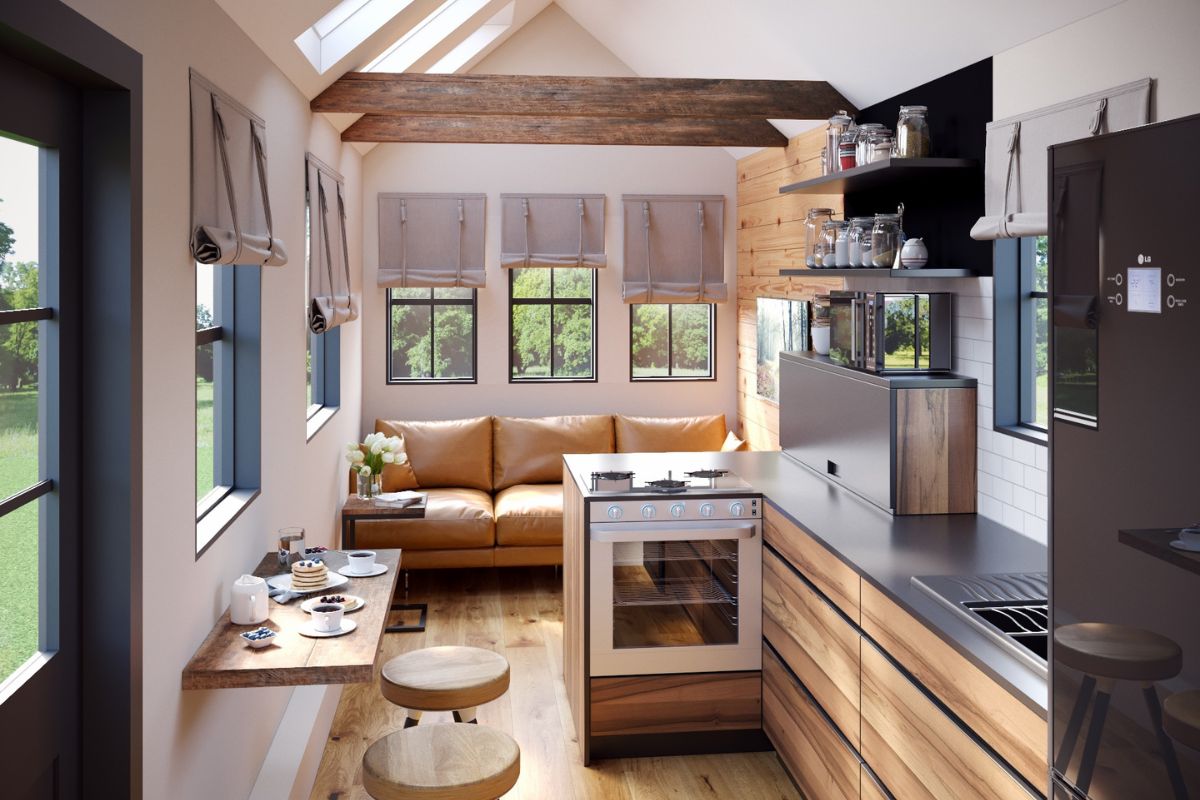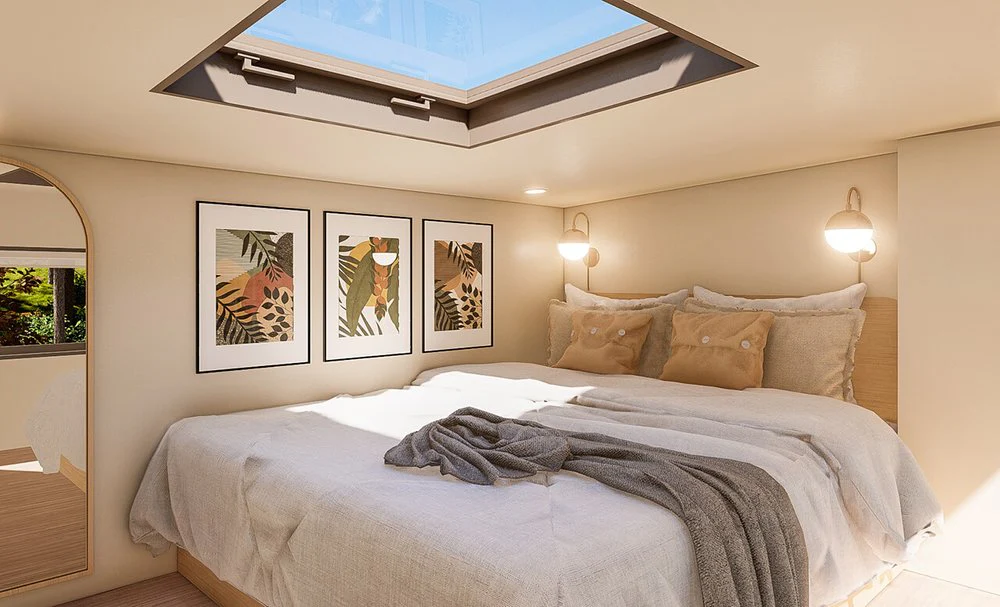Safety Risks and Dangers of Living in an RV

Image Source: Canva
Living in an RV offers a life of adventure, freedom, and mobility that few other lifestyles can match. However, along with the allure of the open road comes a unique set of safety risks and dangers.
- Enhance RV security with locks, motion-sensor lights, and vigilant campsite selection to prevent theft and break-ins.
- Implement fire safety measures, including regular maintenance and having fire extinguishers, to mitigate RV fire hazards.
- Regularly inspect and maintain propane systems and install CO detectors to prevent leaks, explosions, and poisoning.
- Manage humidity and ensure good ventilation to prevent mold growth and maintain air quality inside the RV.
- Practice safe driving and towing techniques, and choose safe locations for camping or boondocking to ensure overall safety.
From theft to fire hazards, it's essential for RV dwellers to be vigilant and proactive about their safety. Let's explore some of the critical areas where attention is needed.
Theft, Break-Ins, and Personal Security
The nomadic lifestyle of RV living can sometimes leave you more vulnerable to theft and break-ins. Unlike traditional homes, RVs can be seen as easier targets due to their inherent mobility and, sometimes, isolated parking spots.
Enhancing the security of your RV is not just about installing better locks (though that's a great start); it's about creating a multi-layered approach to deter would-be thieves. Consider motion-sensor lights, security cameras that can send alerts to your phone, and even a good old-fashioned safe for valuables.
When it comes to campsite selection, trust your gut—opt for well-lit, reputable sites, and don’t shy away from getting to know your neighbors. A community watches out for one another.
Additionally, consider installing safes for vehicles to securely store your valuables, ensuring peace of mind while on the road.
RV Fire Hazards
The cozy confines of an RV can turn into a dangerous trap if fire safety is overlooked. The construction materials of many RVs can fuel flames rapidly, making a small ignition source a potentially catastrophic event.
This risk is exacerbated in close-quarter RV parks where a fire can leap from one vehicle to another in a blink. Key safety measures include keeping grills, campfires, and any external heat sources a safe distance from your RV.
Pay attention to the mundane yet critical devices inside your RV as well—like ensuring your electric space heater has an automatic shut-off feature and is never left unattended. Old batteries and malfunctioning RV refrigerators are notorious for being fire starters.
Regular checks, timely maintenance, and being alert to recall notices can significantly mitigate these risks. A comprehensive fire prevention strategy encompasses everything from installing smoke detectors to having a fire extinguisher readily available and knowing how to use it.
Propane Safety: Leaks and Explosions
Propane, while a lifeline for heating and cooking in RVs, comes with its own set of dangers. A propane leak not only poses a risk of explosion but can also lead to carbon monoxide poisoning.
The odorant added to propane is there to help detect leaks, but relying solely on your nose isn’t enough. Regular inspections and maintenance by professionals are non-negotiable practices. This includes checking hoses, connections, and tanks for wear and tear or damage.
Installing a propane gas detector in your RV adds an extra layer of safety, alerting you to leaks you might not smell. It’s also wise to familiarize yourself with the shut-off valves on your propane tanks, ensuring you can act quickly in an emergency.
Carbon Monoxide Risks in RV Living
One invisible danger that lurks in the seemingly serene RV lifestyle is carbon monoxide (CO)—a silent but deadly gas that can accumulate in closed spaces without warning. Given that RVs compact living with heating and cooking appliances, the risk of CO poisoning is not to be underestimated.
The cornerstone of CO safety is a well-maintained carbon monoxide detector. Regularly testing your detector and ensuring it's powered (with fresh batteries or a reliable power source) can be the difference between life and death. Ventilation is key when using any combustion appliances inside the RV, and never, under any circumstances, ignore the alarm of a CO detector.
RV Humidity and Mold Concerns
Humidity might seem like a minor nuisance, but in the confined space of an RV, it's a catalyst for mold and mildew, which can lead to health issues and damage your home-on-wheels. Managing interior climate is crucial—utilize vents, fans, and open windows to foster adequate airflow and reduce moisture.
Dehumidifiers work wonders in pulling excess moisture from the air, while products like Eva-Dry can help in smaller spaces or closets.
Additionally, consider mattress underlayment mats to prevent moisture buildup underneath bedding—a common mold hotspot. Regular inspections can catch potential problems early, keeping your mobile abode safe and sound.
RV Towing and Driving Safety
Towing an RV adds a layer of complexity to driving that demands respect and preparation. Proper towing practices begin with understanding your vehicle's towing capacity and ensuring your RV or trailer falls within those limits. Adjust your driving habits to accommodate the increased size and weight, allowing more distance for braking and making wider turns.
High winds and adverse weather conditions can be particularly challenging for RVs, so stay informed about weather forecasts and be prepared to adjust your route or wait it out. Always adhere to safe towing speeds and weight limits to prevent accidents and ensure a smooth journey.
RV Park and Boondocking Safety
.jpeg)
Choosing between the relative safety of campgrounds and the wild allure of boondocking (camping off-grid) depends on personal preference and preparation. Campgrounds offer amenities and a sense of community, where neighbors can look out for each other, but they're not without risks.
On the other hand, boondocking offers solitude and connection with nature but requires thorough preparation against potential security issues. In remote areas, be mindful of your surroundings, secure your RV, and consider safety devices like door alarms or motion sensor lights. Regardless of where you park, awareness and preparation are your best defenses against potential dangers, allowing you to enjoy the beauty and freedom of RV living safely.
Pet Safety Concerns in RV Life
Traveling with pets adds joy and companionship to RV living but also introduces several safety considerations. Overheating is a significant risk, especially in warmer climates or during summer months. Never leave pets unattended in an RV without proper ventilation or air conditioning.
Encounters with wildlife can pose another danger; always keep pets on a leash outside and be vigilant about surroundings to avoid confrontations with animals from the wild. Regular check-ins with a vet and ensuring your pet is comfortable and safe during travel are paramount.
Concerns About Water Quality and Filtration
Water quality can vary greatly from one location to another, impacting both health and the RV's plumbing system. Investing in a high-quality RV water filtration system is essential for ensuring that the water you drink and use daily is free from contaminants and sediments.
Regularly replacing filters and testing water sources when possible can prevent health issues and extend the lifespan of your RV's plumbing fixtures.
Pest Control in RV Living
Pests, from ants and mice to larger critters, can find their way into your RV, causing damage and distress. Effective pest control strategies include sealing up potential entry points, using natural deterrents like peppermint oil for mice, and maintaining cleanliness to avoid attracting insects.
Also, using glue traps can help keep pests under control in RVs. Placing traps in spots where pests often go, like near doors or in dark areas, can catch them before they cause big problems.
Regular inspections of the RV's exterior and undercarriage can help identify and address vulnerabilities before they become infestations.
Air Quality and Dust Concerns in RVs
The compact nature of RV living means that indoor air quality is a critical concern. Wildfire smoke, exhaust fumes, and even off-gassing from new materials can pollute your living space. Implementing solutions such as air purifiers, regularly replacing air filters, and ensuring proper ventilation can significantly improve air quality.
Being mindful of parking locations, especially avoiding downwind from highways or industrial sites, can also help.
Electromagnetic Field Awareness
For those sensitive to electromagnetic fields (EMFs), it's essential to be aware of the proximity to power substations, cell towers, and even the electrical systems within the RV itself. While the health impacts of EMF exposure are still debated, minimizing unnecessary exposure by choosing parking spots wisely and utilizing EMF-blocking materials when possible can provide peace of mind for those concerned.
Healthcare Access and Wellness
Maintaining a healthy lifestyle while on the road involves managing overindulgence, combating sedentary habits, and ensuring access to healthcare services. Regular exercise, healthy eating, and taking breaks to stretch during long drives can mitigate some health risks associated with RV living.
Additionally, knowing the location of healthcare facilities and having a plan for accessing medical care in unfamiliar areas are essential for addressing health concerns promptly.
Wildlife Safety and Interaction Precautions
Living in or near natural habitats means coexisting with wildlife. Store food and trash securely to avoid attracting animals to your campsite. Keeping a respectful distance from wildlife ensures safety for both animals and humans. Understanding and respecting the balance of nature allows for a harmonious experience, enjoying the beauty of wildlife without the risks of unwanted encounters.
Final Thoughts
Embracing the RV lifestyle is about finding freedom and adventure, but it comes with the responsibility of ensuring safety and well-being. From managing fire risks and carbon monoxide concerns to ensuring pets are safe and healthy, each aspect of RV living requires attention and care. By staying informed and prepared, you can mitigate risks and focus on the joy of exploring the open road.
Remember, safety is not just a set of guidelines but a continuous practice that enhances the RV living experience, allowing you to create lasting memories with peace of mind.







.jpg)


